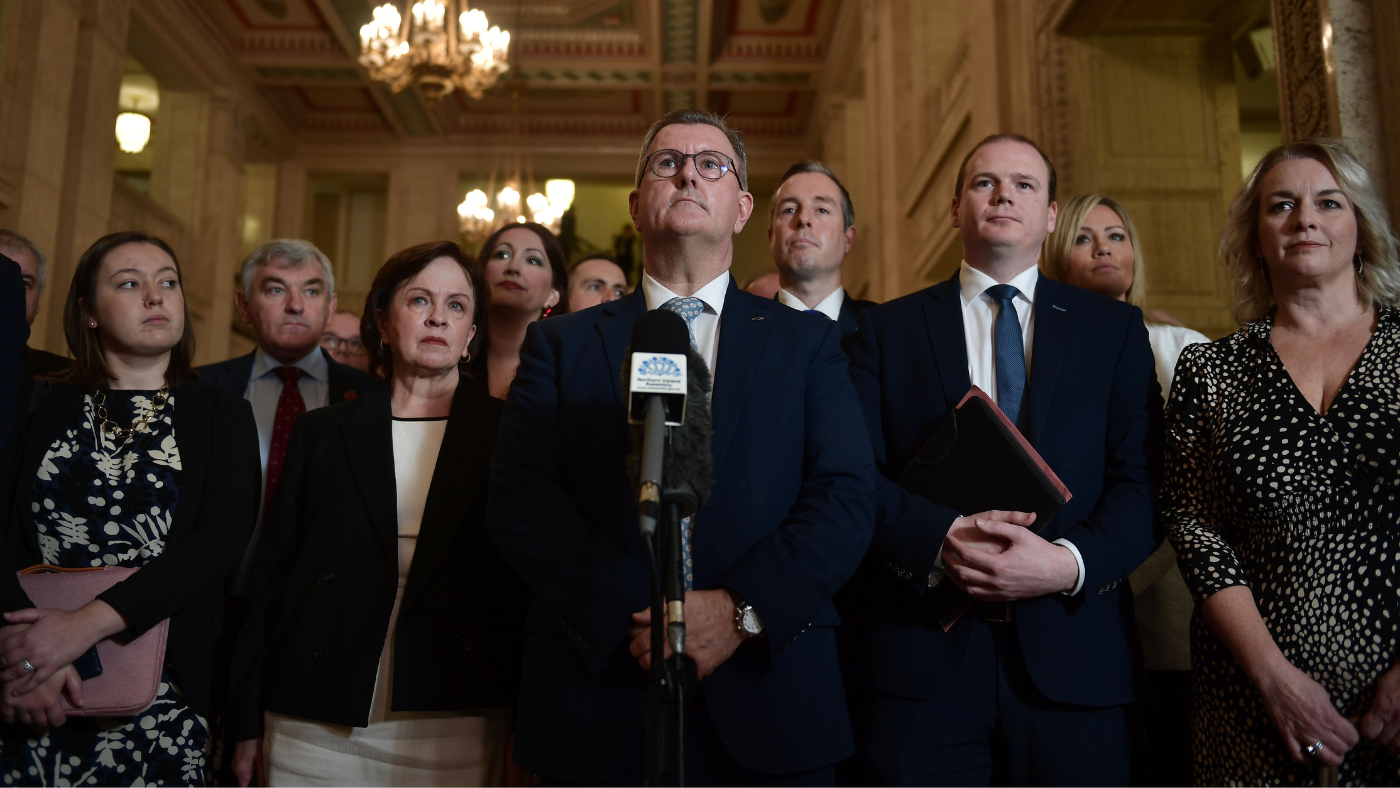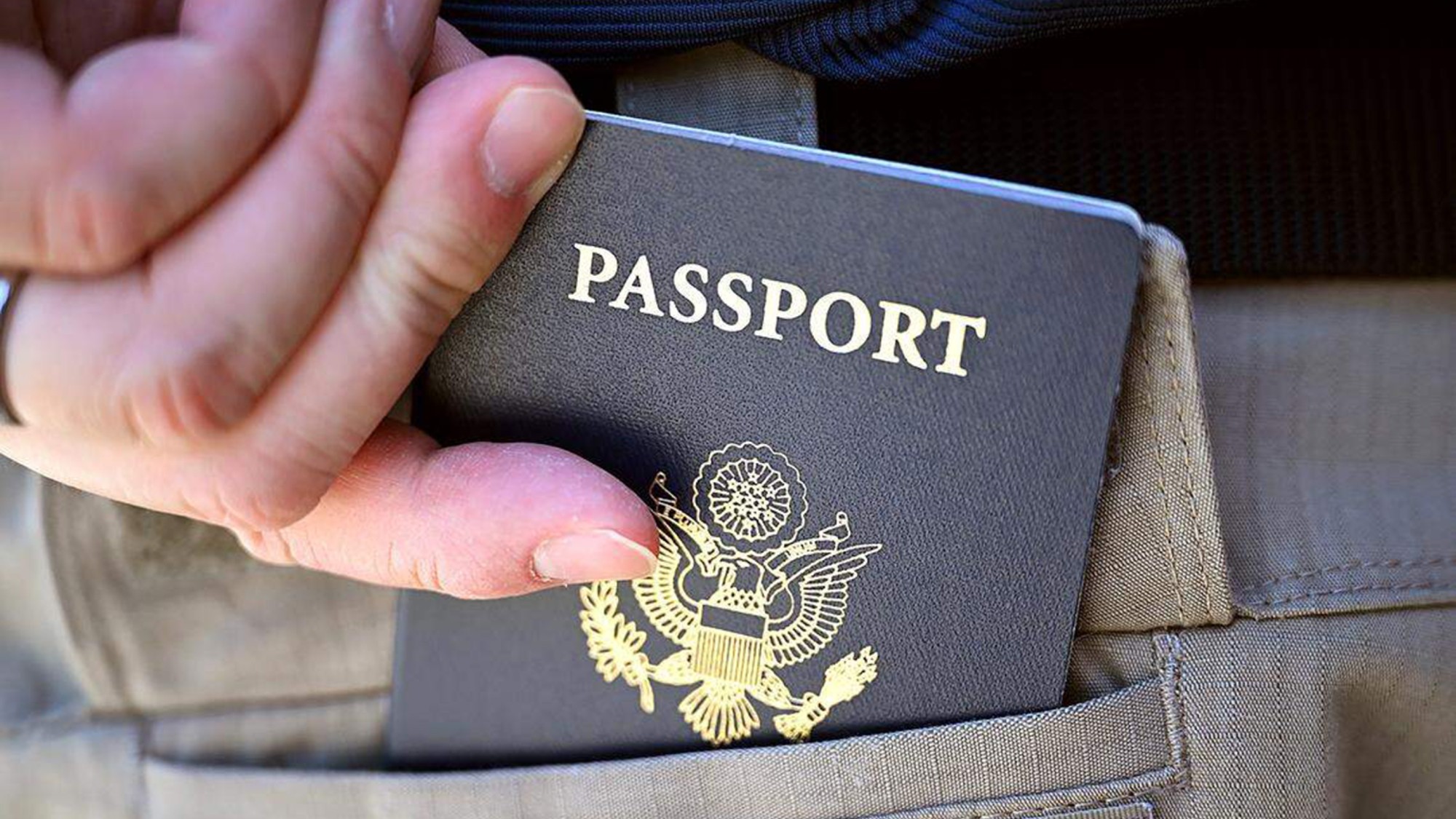Stormont stalemate: can devolution in Northern Ireland still work?
Latest deadline looms as DUP remains in ‘haggle mode’ with UK government

A free daily email with the biggest news stories of the day – and the best features from TheWeek.com
You are now subscribed
Your newsletter sign-up was successful
February will mark two years since the Democratic Unionist Party (DUP) brought down Stormont's power-sharing government in protest over post-Brexit trade checks between Britain and Northern Ireland.
The nation's next deadline for forming a government is looming, with early assembly elections on the cards if an executive is not formed by 18 January.
But this ultimatum will "more than likely be ignored" by Northern Ireland Secretary Chris Heaton-Harris, said ITV News, particularly given it coincides with the biggest ever strike by public sector workers.
The Week
Escape your echo chamber. Get the facts behind the news, plus analysis from multiple perspectives.

Sign up for The Week's Free Newsletters
From our morning news briefing to a weekly Good News Newsletter, get the best of The Week delivered directly to your inbox.
From our morning news briefing to a weekly Good News Newsletter, get the best of The Week delivered directly to your inbox.
Heaton-Harris has already "pushed back this deadline several times via emergency legislation", said the BBC, and may well do so again.
Will there be more talks ahead of the deadline?
The DUP has insisted talks with the government over the Windsor framework – a UK/EU agreement that addresses concerns over the Northern Ireland protocol – will continue this week despite the apparent collapse of talks before Christmas.
But in December, the Northern Ireland secretary said talks to restore power-sharing were over, adding it was "now time for decisions". This referred to the £3.3 billion package the government has offered in return for the restoration of the executive at Stormont.
Earlier this week, Sinn Féin, Northern Ireland's largest political party, called the talks a "charade" and accused Downing Street of "facilitating" them for "far too long" with no conclusion, said the BBC.
A free daily email with the biggest news stories of the day – and the best features from TheWeek.com
Can a breakthrough be achieved?
There is hope the stalemate could be broken. The "increasing public pressure" and threat of "mass strikes" could see the executive "restored in the new year", said the Belfast Telegraph in December, with unnamed DUP sources suggesting to the paper that it was "inevitable".
Publicly, however, the DUP leader Jeffrey Donaldson has said the government's current offer is not a "sound basis" for reforming the executive and said the £3.3 billion offer did not include "the recurrent aspect of that public sector pay award" for next year's Stormont budget – despite the UK government's offer including almost £600 million for a public sector pay deal.
While Northern Ireland's other parties appear to have accepted that the UK has "made a final offer and the time for talking was exhausted", the DUP still appears to be in "haggle mode". The party is seeking more stringent legal assurances from Westminster over Northern Ireland's place within the UK internal market, said Politico in December.
Northern Ireland's political leaders have "accused Donaldson of refusing to accept political reality" and preventing the £584 million "financial injection" to the public sector, the news site added.
"This is starting to feel a bit like a bad break-up, where one person has listed themselves on Facebook as single and the other one is still claiming: 'It's complicated'," said former justice minister and Alliance Party leader Naomi Long at the end of December's failed negotiations. "These talks are over."
Will the strikes force the DUP to act?
The legislative deadline for re-establishing Stormont's power-sharing government coincides with Northern Ireland's biggest ever strikes, as thousands of civil servants, health and education staff take action over pay and conditions.
The strike may "increase pressure" on the DUP to end its block on power-sharing, while the Northern Ireland secretary will also come under pressure to resolve the dispute in the absence of a Stormont executive, said the BBC.
But Heaton-Harris has said the matter is for local ministers to resolve and said pay claims could be settled with the £584 million package on offer for the public sector in the event of a Stormont return.
Assuming the assembly election deadline is pushed back as expected, parties in Stormont will "already be preparing for a Westminster election" that is expected later this year. But a failure to restore the devolved government this year will "raise the question: What is the alternative?"
In August, Taoiseach Leo Varadkar called for a "Plan B" if Stormont was not restored, urging the UK and Irish governments to "work hand-in-glove and apply both pressure and support – in a coordinated way" to restore power-sharing.
Should Stormont be restored, Sinn Féin's vice-president, Michelle O'Neill, is set to become Northern Ireland's first minister. It will be the first time an Irish republican has ever held the role in the Northern Ireland executive.
Sorcha Bradley is a writer at The Week and a regular on “The Week Unwrapped” podcast. She worked at The Week magazine for a year and a half before taking up her current role with the digital team, where she mostly covers UK current affairs and politics. Before joining The Week, Sorcha worked at slow-news start-up Tortoise Media. She has also written for Sky News, The Sunday Times, the London Evening Standard and Grazia magazine, among other publications. She has a master’s in newspaper journalism from City, University of London, where she specialised in political journalism.
-
 ‘Those rights don’t exist to protect criminals’
‘Those rights don’t exist to protect criminals’Instant Opinion Opinion, comment and editorials of the day
-
 Key Bangladesh election returns old guard to power
Key Bangladesh election returns old guard to powerSpeed Read The Bangladesh Nationalist Party claimed a decisive victory
-
 Judge blocks Hegseth from punishing Kelly over video
Judge blocks Hegseth from punishing Kelly over videoSpeed Read Defense Secretary Pete Hegseth pushed for the senator to be demoted over a video in which he reminds military officials they should refuse illegal orders
-
 How corrupt is the UK?
How corrupt is the UK?The Explainer Decline in standards ‘risks becoming a defining feature of our political culture’ as Britain falls to lowest ever score on global index
-
 How ‘Manchesterism’ could change the UK
How ‘Manchesterism’ could change the UKThe Explainer The idea involves shifting a centralized government to more local powers
-
 ‘Dark woke’: what it means and how it might help Democrats
‘Dark woke’: what it means and how it might help DemocratsThe Explainer Some Democrats are embracing crasser rhetoric, respectability be damned
-
 San Francisco tackles affordability problems with free child care
San Francisco tackles affordability problems with free child careThe Explainer The free child care will be offered to thousands of families in the city
-
 The high street: Britain’s next political battleground?
The high street: Britain’s next political battleground?In the Spotlight Mass closure of shops and influx of organised crime are fuelling voter anger, and offer an opening for Reform UK
-
 The Mint’s 250th anniversary coins face a whitewashing controversy
The Mint’s 250th anniversary coins face a whitewashing controversyThe Explainer The designs omitted several notable moments for civil rights and women’s rights
-
 US citizens are carrying passports amid ICE fears
US citizens are carrying passports amid ICE fearsThe Explainer ‘You do what you have to do to avoid problems,’ one person told The Guardian
-
 Inside Minnesota’s extensive fraud schemes
Inside Minnesota’s extensive fraud schemesThe Explainer The fraud allegedly goes back to the Covid-19 pandemic